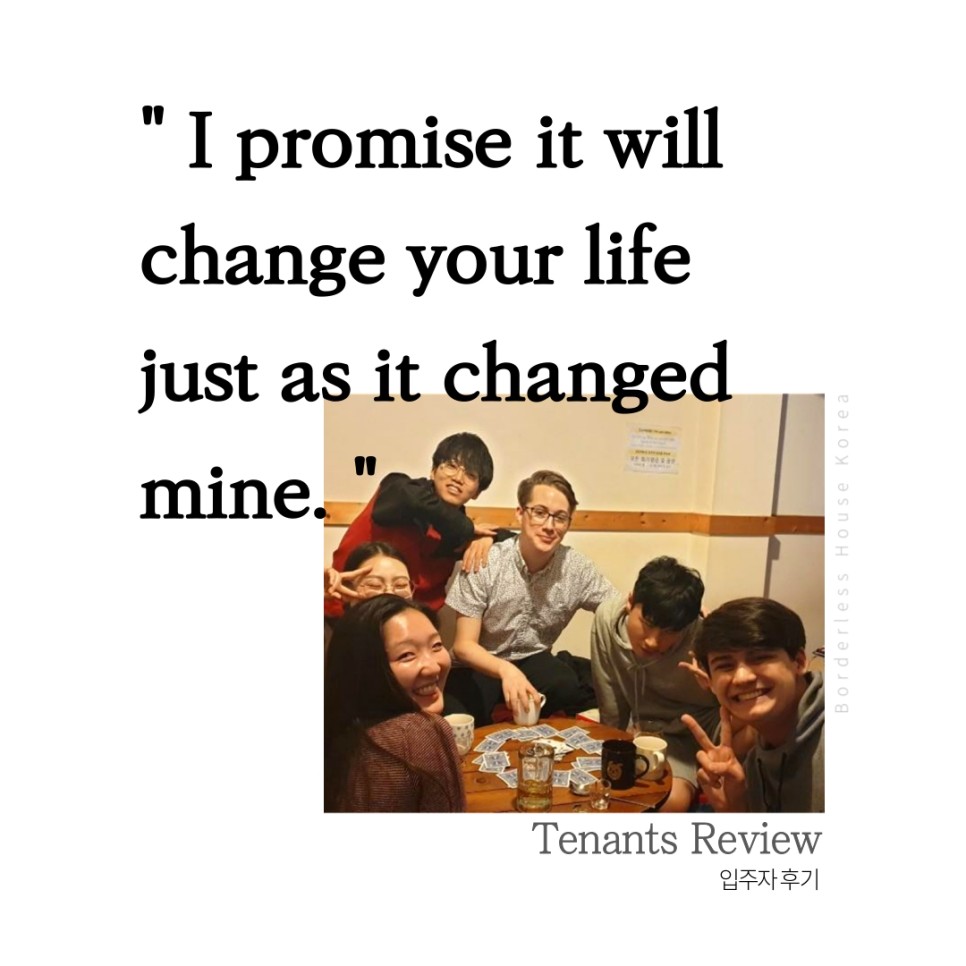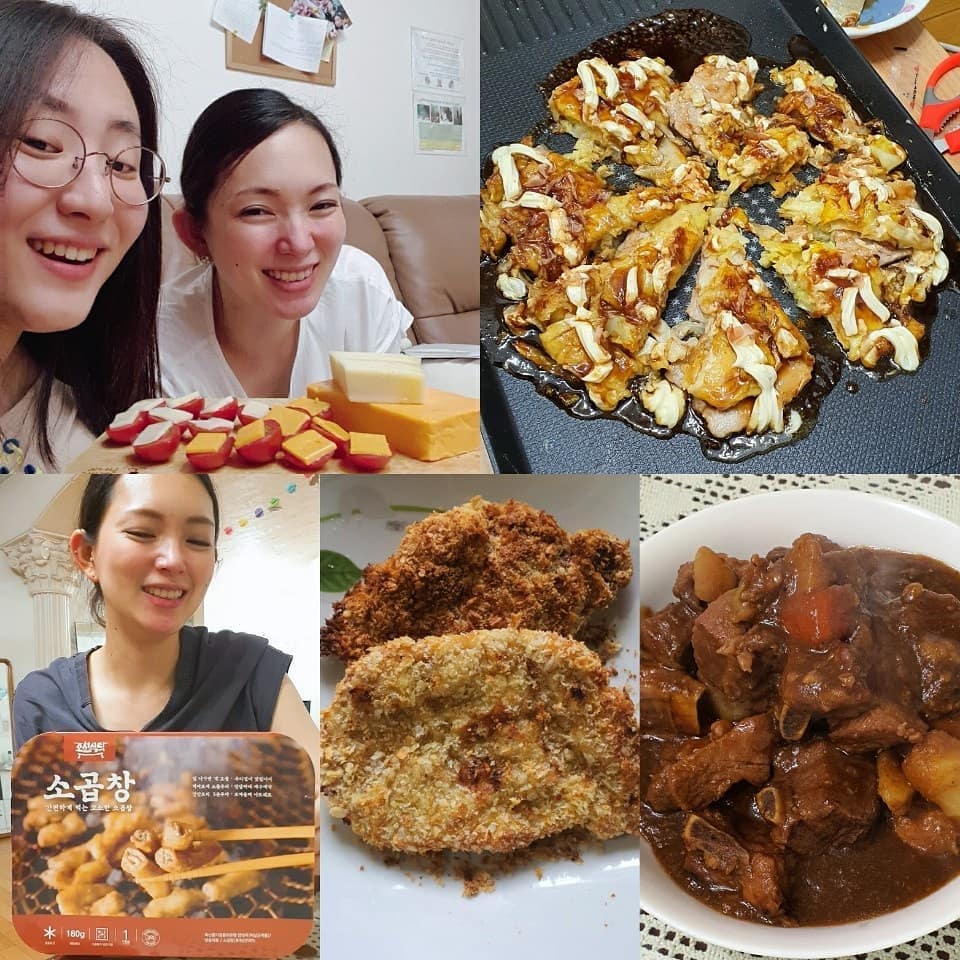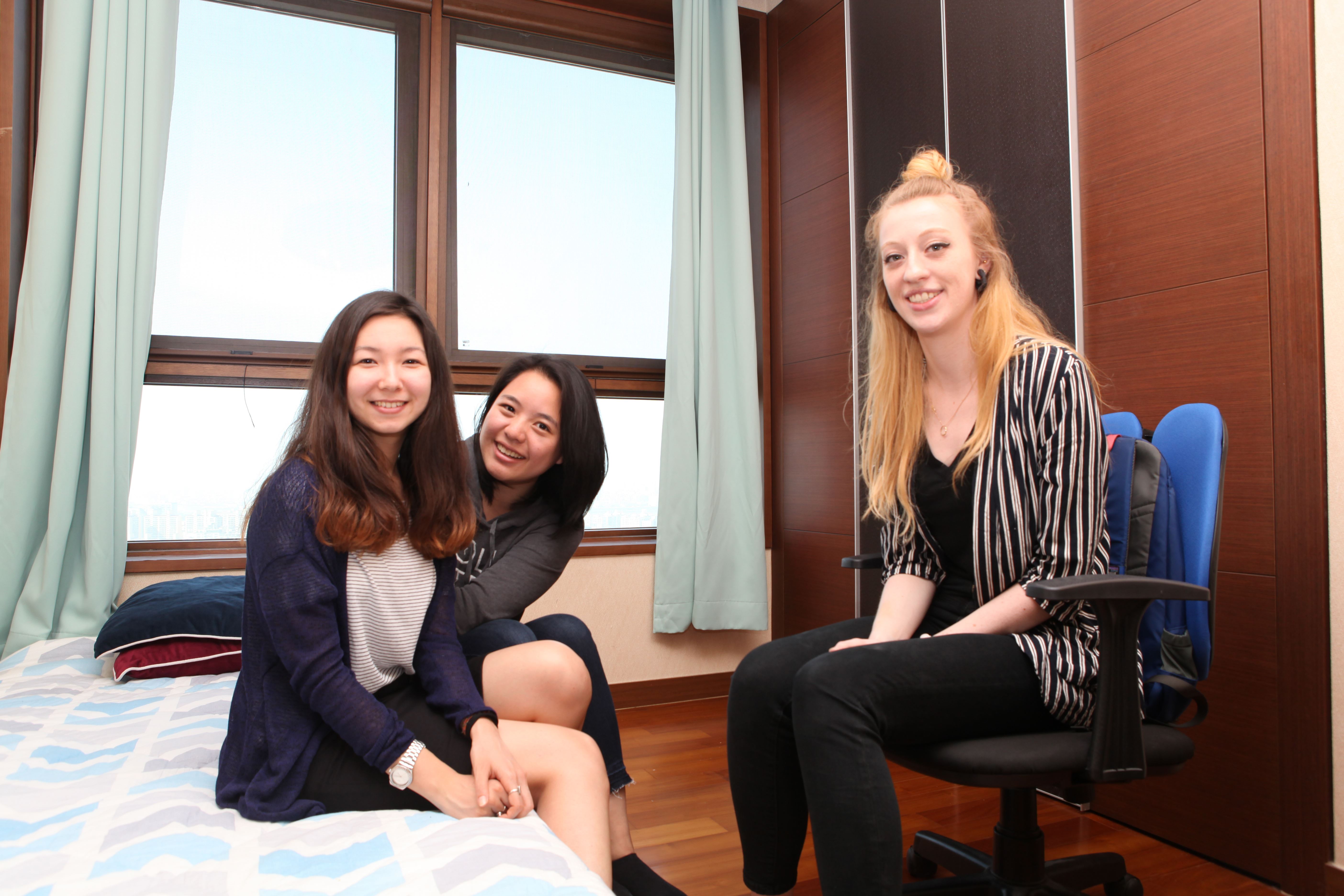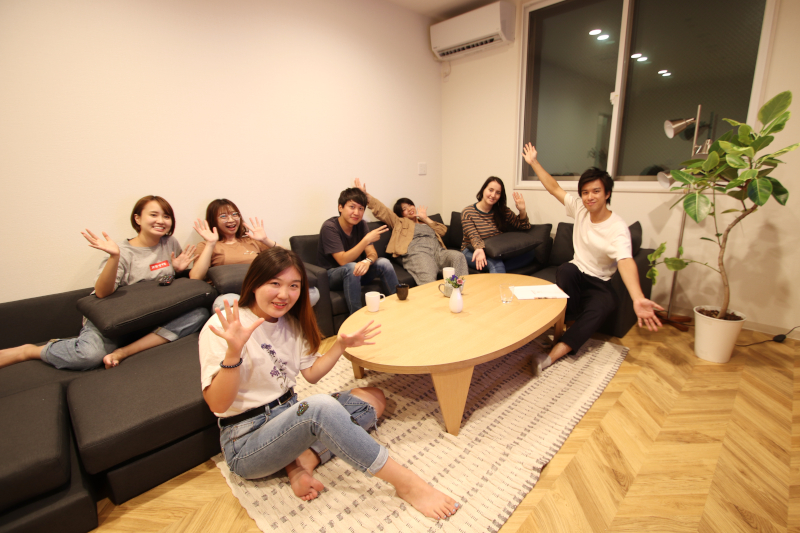Moving to another country is a big step in anyone’s life. It can be stressful to think about find accommodation, work, friends in a foreign country, and mix in the lifestyle there.
Many foreigners who move to another country, prefer to live with people to avoid getting lonely. Sharing an apartment with flatmates is also comparatively cheaper than renting a studio apartment by themselves. However, when moving to another country, it can be difficult to find people who are willing to co-rent an apartment.
Fortunately, countries like Japan, South Korea, and Taiwan offer share houses, to ensure the comfort of the moving foreigners. They are suitable accommodation for people that wish to co-rent a space and want to save money on buying furniture and appliances.
Share houses are rental places with private rooms and shared spaces like the kitchen and dining area. People from different backgrounds live together at a share house and learn from each other. Share houses are quite popular amongst young people with a penchant for exploring the new and exciting.
Local Friends And Acquaintances
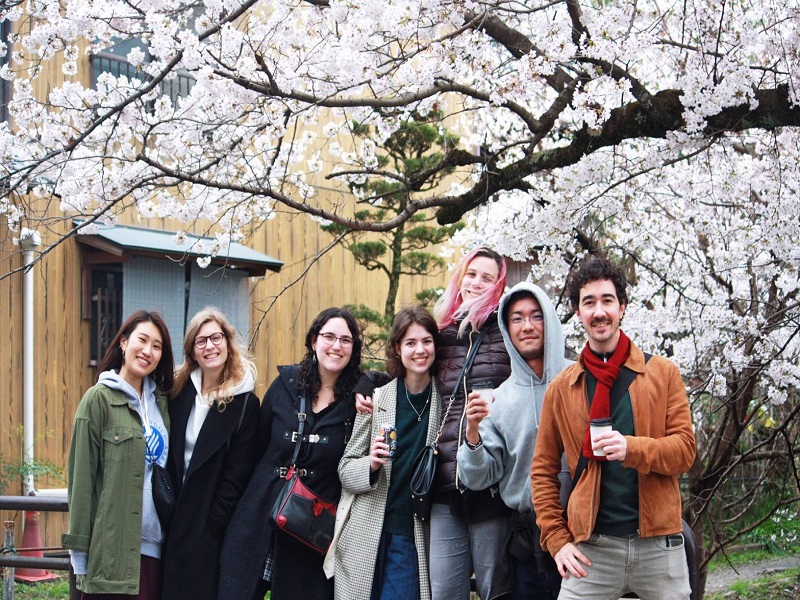
In some countries, people are apprehensive when talking to foreigners and are less likely to be polite or helpful. It can be difficult to become friends with the local people in such a country. Sometimes the only friends and acquaintances that a foreigner makes are people from work. A limited social life and a feeling of not belonging can leave you frustrated and sad.
When living at a share house, you get an opportunity to interact with both non-citizen residents or expats and the local people of the country. You will be meeting these people in the shared spaces of the house like home theatre, living room, kitchen, etc. and are likely to become friends if you have similar personalities or interests. This is how you can end up making friends in the local community.
Being friends with locals can expose you to the local culture and community. They will open doors to freely explore the country during your stay.
Local Customs And Basic Communication
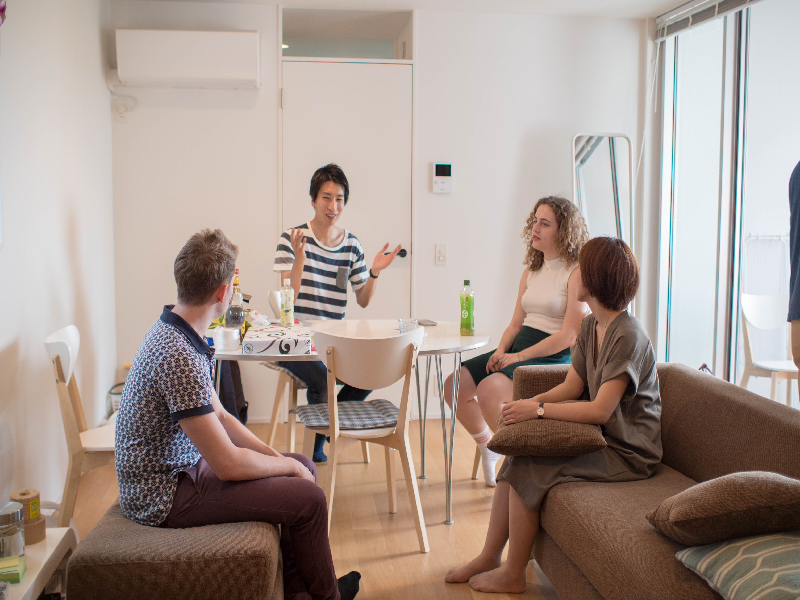
One reason why the locals are apprehensive of foreigners is that they feel that their customs are misunderstood and disrespected by those who don’t share them. When you live with the locals or become friends with them, you can observe their customs and learn them. The way that the locals speak, greet, and the topics that interest them vary from country to country. From your local housemates, you can learn these customs and communicate efficiently.
You will also be able to learn their table manners and eating etiquette. Whenever visiting a restaurant or eating lunch with colleges, you will be able to earn bonus points for following local etiquettes and can prevent feeling like you don’t fit.
For example, In Japan, people greet each other by bowing. It can either be a small nod or a deep bend. Greeting with a deep bow, it is seen as a sign of respect.
Similarly, in Taiwan, you are expected to sit with your hands on the front or in your lap, as opposed to spreading them and taking up space. Spreading your legs while sitting somewhere and obstructing the way is also considered impolite by the people.
Festivals And Seasonal Events
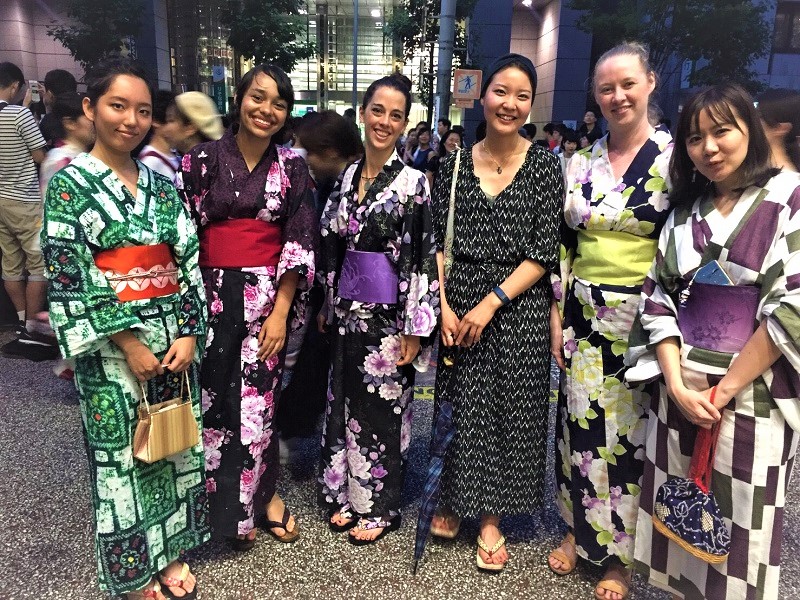
The festivals and seasonal events celebrated in various countries are different, even New Year is celebrated differently in most countries.
Festivals and seasonal events are epitomes of cultural activities, food, clothing, entertainment. It is a privilege to experience cultural gatherings of communities on their celebrated occasions.
For example, Pingxi Sky Lantern Festival and Biennial Butterfly Beauty Festival are two festivals that can only be witnessed in Taiwan. Similarly, Seollal or Lunar New Year’s Day and Chuseok are very enthusiastically celebrated in South Korea.
When sharing a house with locals, you can ask them to let you accompany them to festivals and events. You can ask them about the activities conducted and why people celebrate a particular festival. It will not only increase your general knowledge of the place and help you feel included but will also open your eyes to a world you had never known before.
And who knows, maybe some of your housemates will invite you home, to experience celebrating the festival the local way with their families.
Local Foods
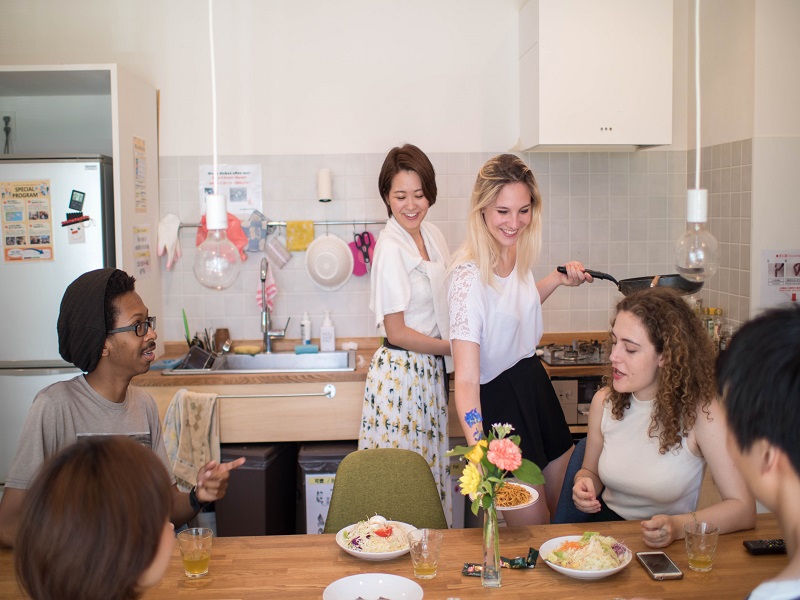
Countries with rich culinary histories have given some recipe or dish to the global food market, that is obsessed over by many. The Chinese have the credit for noodles and dumplings, the Mexicans have their tacos, the Americans eat hamburgers, the Japenese have given the world Sushi, and the South Koreans have made Kimchi and Bulgogi famous. However, are these the meals that the local Mexican, American, or Japanese people consume every day? No, they are not.
While these foods are popular, they are not what the locals eat daily. For example, when moving to Japan, you will find many restaurants that serve multiple types of Sushi. But when you live with a Japanese local, you will be able to eat ramen, gyudon beef bowls, dashi soup stock, fish, and rice cake, amongst other local dishes. Similarly, A local in Taiwan will be able to introduce you to Zong Zi, Oyster Omelet, Minced Pork, etc.
Living with local people will enable you to observe and experience their eating habits. Every culture has some easy to make soul food or some traditional dish that is not sold at restaurants and diners.
When a local housemate at your share house cooks their traditional food, it will be culturally authentic and not modified to make it five-star. It will taste like home and is the best way to expose yourself to the local way of living.
Local Language
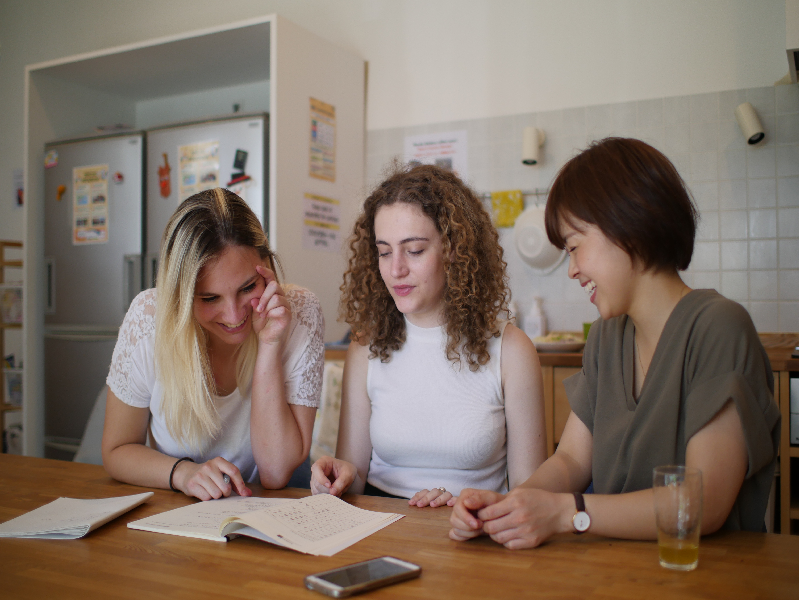
In some countries, it can be difficult to make friends and navigate around the city if you do not know the local language. In some countries, the names of shops, lanes, and train stations are often written in the local language. You can learn how to reach from office to home and from home to office and can interact with most people in English, but if you need to visit the local clinic or shop, you will find it difficult to communicate your needs. There can be misunderstanding and confusion when trying to understand each other.
At such a time, having a local friend or housemate can be a blessing. Not only can they accompany you for your doctor’s appointment, but they can also help you learn how to write, read, and speak the local language if you plan to stay in the country for longer.
When someone in the group is unable to understand the local language, people often unintentionally end up excluding them from the conversation. Foreigners experience such situations in countries like Japan, China, Taiwan, India, and South Korea. For example, people in these countries prefer to speak in Japanese, Mandarin, Taiwanese Mandarin, Hindi, and Korean. Someone who doesn’t the local language may feel different and left out.
Regular conversations with native speakers of a language are the best way to get fluent in speaking a language. In no time, you will be able to understand the talk between your local colleagues and reply to them, if you are sharing the house with a native speaker.
Deeper Understanding Of National Character And Values

It is easier to learn the customs and language of a country, but quite challenging to understand their values, perspectives, and lifestyle. The way of living in the West and the East are very different. While individualism and independence are cherished in the West, in the East local communities are valued more. Whereas, in the Asian Continent, many countries are passionate about family values, culture, and religious beliefs.
Understanding the culture and perspective of local people is very essential to understanding their lifestyle and priorities. When living at a share house with the local people, you will be able to get a better idea of the local values. Do people respect the elderly? Are patience and punctuality considered essential virtues in the country? Do people often discuss the climate, is it associated with certain traditional myths? When living with a local person, you will learn a lot about the way of thinking of the locals of the country.
This will make it easier for you to converse with them. You will also be able to understand them instead of judging the way they live. This will make you a better human and will enhance your personality.
Local Information

Every country has some areas most visited by the locals. They serve the best local dishes and provide cheap shopping opportunities in such areas. With local friends from your share house by your side, you will be able to take your sightseeing and exploring to the next level. You can avoid tourist destinations and activities and live the way locals do.
If you’re moving to Japan, Taiwan, or South Korea and wish to move into a share house, you can reach out to us at BORDERLESS HOUSE. At share houses by BORDERLESS HOUSE, we have an equal ratio of foreigners and local housemates, to ensure that the foreigners are exposed to the local culture and community.


















.jpeg?type=w966)
